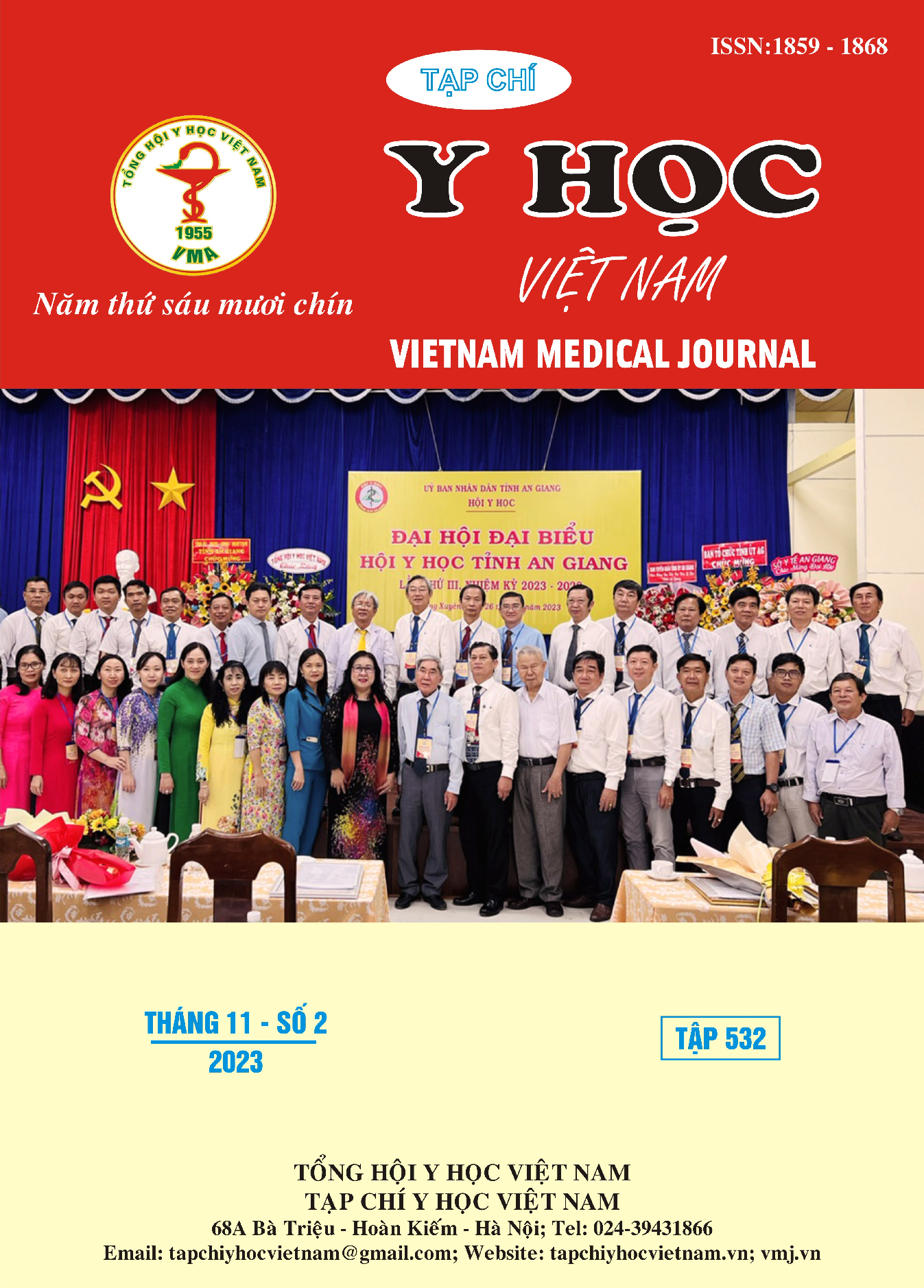KHẢO SÁT THỰC TRẠNG VÀ MỘT SỐ YẾU TỐ LIÊN QUAN ĐẾN TUÂN THỦ ĐIỀU TRỊ Ở NGƯỜI CAO TUỔI BỊ TĂNG HUYẾT ÁP ĐIỀU TRỊ NGOẠI TRÚ TẠI HUYỆN CHÂU THÀNH A, TỈNH HẬU GIANG NĂM 2023
Nội dung chính của bài viết
Tóm tắt
Mục tiêu: (1) Xác định tỷ lệ tuân thủ điều trị ở bệnh nhân cao tuổi bị tăng huyết áp đang được điều trị ngoại trú tại các trạm y tế thuộc huyện Châu Thành A năm 2023; (2) Tìm hiểu một số yếu tố liên quan đến tuân thủ điều trị của bệnh nhân cao tuổi bị tăng huyết áp. Phương pháp: Nghiên cứu mô tả cắt ngang có phân tích trên bệnh nhân từ 60 tuổi trở lên đã được chẩn đoán tăng huyết áp và điều trị ngoại trú tại các trạm y tế thuộc huyện Châu Thành A từ 04/2023 đến 09/2023. Kết quả: Nhóm bệnh nhân cảm thấy phiền phức khi theo sát kế hoạch điều trị tăng huyết áp (11,5%). Khó khăn trong việc nhớ sử dụng thuốc (29,5%), tình trạng thỉnh thoảng quên thuốc (37%). Biết về biến chứng của tăng huyết áp trên tim (14,5%), trên mạch máu (5,5%). Nhóm thuốc bệnh nhân sử dụng nhiều nhất là amlodipin 5 mg với tỷ lệ 71% và losartan 50 mg với tỷ lệ là 27,5%. Theo dõi huyết áp hằng ngày (12,5%), theo dõi khi có triệ chứng (52%). Hay quên uống thuốc (27%), do thiếu hỗ trợ (7%). Mức độ tuân thủ điều trị dân tộc Khmer cao gấp 13,5 lần so với dân tộc Kinh (P<0,001). Có sự khác biệt về mức độ tuân thủ điều trị giữa nhóm sống với vợ/chồng (0,19) và nhóm sống với con cái (0,22) với nhóm sống 1 mình (P=0,02 và P=0,01). Thời gian điều trị nhóm đối tượng dưới 1 năm (1) tuân thủ tốt hơn nhóm trên 3 năm (0,57), thấp hơn nhóm 1-2 năm (2,56) và 2-3 năm (1,78) (P<0,001). Mức độ tuân thủ điều trị của nhóm theo dõi huyết áp khi đi khám cao gấp 4,88 lần so với nhóm theo dõi huyết áp hằng ngày (P=0,04). Nhóm bệnh nhân tuân thủ điều trị có tỷ lệ kiểm soát huyết áp cao hơn 2,26 lần so với không tuân thủ (P<0,05). Kết luận: Tỷ lệ bệnh nhân tuân thủ điều trị tốt chiếm (11,5%), tuân thủ điều trị kém chiếm (88,5%). Có mối liên hệ giữa tuân thủ điều trị với tình trạng gia đình, theo dõi huyết áp, yếu tố thời gian và dân tộc. Sự khác biệt này có ý nghĩa thống kê (P<0,05).
Chi tiết bài viết
Từ khóa
Tăng huyết áp, tuân thủ điều trị, các yếu tố liên quan.
Tài liệu tham khảo
TP.HCM, 2017, 152-153.
2. Nguyễn Trần Phương Thảo, Nghiên cứu sự tuân thủ điều trị và các yếu tố liên quan đến tuân thủ điều trị tăng huyết áp ở bệnh nhân trên 60 tuổi tại Phòng khám Bệnh viện Đại học Y dược Cần Thơ năm 2018, Tạp Chí Y Dược học Cần Thơ số 20, 2019, 11-18.
3. Bryan Williams, 2018 ESC/ESH Guidelines for the management of arterial hypertension, European Heart Journal, Volume 39, Issue 33, 2018, Pages 3021–3104.
4. Oliveira-Filho D et al., Association between the 8-item Morisky Medication Adherence Scale (MMAS-8) and blood pressure control, Arq Bras Cardiol. 99(1), 2012, 649-58.
5. Ross S, Walker A, MacLeod M. J, Patient compliance in hypertension: role of illness perceptions and treatment beliefs. J Hum Hypertens, 18(9), 2004, 607-13.
6. Son P. T, Quang N. N, Viet N. L, et al, Prevalence, awareness, treatment and control of hypertension in Vietnam-results from a national survey. J Hum Hypertens, 26, (4), 2012, 268-80.
7. World Health Organization, A global brief on Hypertension - Silent killer, global public health crisis, 2013.


